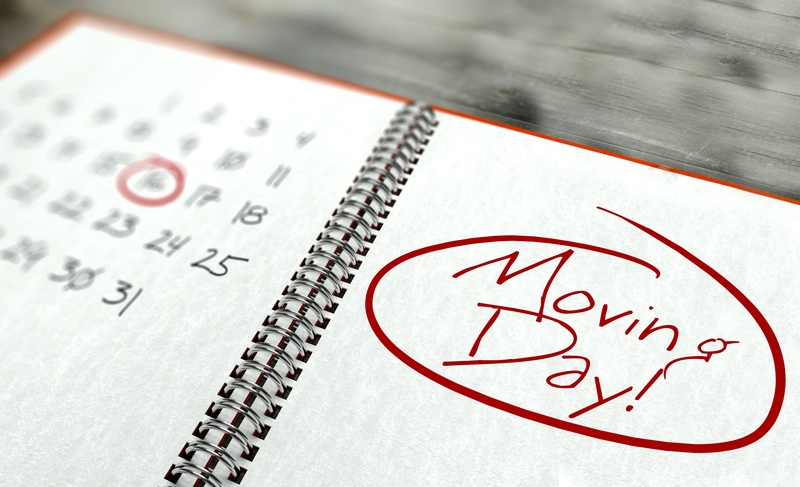Tips for Safely Moving Your Bed and Mattress
Posted on 25/05/2025
Tips for Safely Moving Your Bed and Mattress
Relocating to a new home is always an exciting yet challenging experience, especially when it comes to transporting large and bulky items like your bed and mattress. Ensuring these essential pieces reach your new place undamaged requires careful planning, the right tools, and proper techniques. In this comprehensive guide, you'll find proven tips for safely moving your bed and mattress, so you can enjoy a restful sleep from your very first night in your new home.
Why Properly Moving Your Bed and Mattress Matters
Your bed is more than a piece of furniture; it's the source of your nightly rest. Mattresses and bed frames are significant investments, and improper handling can lead to costly damages, discomfort, or even injuries. That's why, whether you're moving around the block or across states, taking extra care while transporting your bedding items is critical.

Preparation: The Key to Smooth and Safe Bed Moving
Moving large furniture items like beds and mattresses doesn't have to be overwhelming. Proper preparation is the cornerstone of a hassle-free moving process. Here are some essential steps to take before moving your mattress and bed:
1. Gather the Necessary Supplies
- Mattress bags or covers to protect against dust, dirt, and moisture.
- Furniture sliders to safely move heavy items without damaging floors.
- Moving blankets and bubble wrap for wrapping frames and headboards.
- Screwdrivers, Allen wrenches, or other relevant tools for disassembly.
- Strong packing tape and labels.
- Straps or ropes to secure items in the moving truck.
- Dolly or hand truck for easier transportation.
2. Clear a Path
Before you start lifting or moving anything, ensure that your pathway is clear of obstacles, clutter, or tripping hazards. Remove rugs, small furniture, or other items that may get in your way, and prop open doors to make moving smoother.
3. Plan the Move Strategically
Decide whether you'll be moving your bed and mattress yourself or hiring professional movers. If you're DIY-ing, enlist enough help - at least one or two strong helpers are recommended for large beds and mattresses. Schedule your move for a time when daylight is ample, especially if you need to navigate tricky stairs or tight corners.
Disassembling Your Bed Frame Like a Pro
Most beds are too large and cumbersome to move fully assembled. Disassembling your bed frame not only protects the furniture but also prevents injuries. Follow these steps for hassle-free disassembly:
1. Remove Bedding and Accessories
Take off all bedding - pillows, sheets, blankets, and mattress toppers. Pack these items separately in labeled boxes or bags for easy unpacking.
2. Detach the Mattress
Stand the mattress aside in a clean, dry area. If space allows, slip it into a mattress bag right away to keep it clean and protected.
3. Disassemble the Bed Frame
- Remove detachable parts such as the headboard, footboard, slats, or support beams.
- Keep track of all hardware - use small bags to store screws, bolts, and nuts, then tape the bag to the frame or label it clearly.
- If your bed has electronic components (like an adjustable base), disconnect them according to the manufacturer's instructions.
- Take photos beforehand - this helps with easier reassembly later!
Tip: Refer to your bed's instruction manual for specific disassembly guidance.
Packing Your Mattress for Safe Transport
Packing and moving your mattress correctly is essential to preventing dirt, stains, or deformation. Use the following tips to ensure your mattress arrives in mint condition:
1. Invest in a Quality Mattress Bag
Mattress bags are designed to shield your mattress from dust, dirt, and water during the move. Choose a heavy-duty, reusable bag that fits your mattress type (twin, queen, king, etc.). Slide the mattress inside and seal it with packing tape.
2. Keep the Mattress Upright
Always move and store your mattress upright (on its side), not flat or folded, unless it's specifically designed to bend (such as foam mattresses). This maintains the internal structure and makes moving through doorways easier.
3. Avoid Dragging
Mattresses are heavier and bulkier than they seem. Avoid dragging them on the ground to prevent tearing or contamination. Use a dolly or carry handles and enlist a helper for a safer move.
Protecting Your Bed Frame and Headboard
Properly packing bed components minimizes the risk of scratches, dents, or chips. Here's how to protect each element:
- Headboard & Footboard: Wrap in moving blankets or bubble wrap, securing with tape or stretch wrap.
- Side Rails and Slats: Bundle together, wrap with padding, and label to keep parts from getting mixed up.
- Mark fragile parts clearly and place them on the truck last for easy unloading.
Safe Lifting and Carrying Techniques
One of the most important aspects of moving your bed and mattress safely is how you physically handle the items. Improper lifting can cause injury. Here are some expert tips:
- Bend at the knees, not your back: Squat to lift heavy parts, holding them close to your body.
- Use team lifting: For large or heavy pieces like king-size mattresses, always have at least two people share the load.
- Wear gloves for better grip and protection.
- Don't rush: Take your time maneuvering through tight spaces or down stairs.
Loading and Securing Beds and Mattresses in the Moving Vehicle
Packing your moving truck or van efficiently is crucial to avoid damage during transit. Here's how to secure your mattress and bed frame properly for transport:
- Place the mattress upright against the wall of the truck, ensuring it's not underneath any heavy items.
- Use rope or straps to tie the mattress and bed components securely.
- Stack lighter, soft goods on top of wrapped bed parts - never put heavy items on your mattress!
- Fill gaps with pillows or soft items to prevent shifting during the drive.
Unloading and Reassembling the Bed and Mattress
At your new home, the priority is to unpack and reassemble your bed and mattress efficiently. This allows you to rest after a tiring move. Here are some quick tips:
1. Unwrap and Inspect Components
Remove all protective materials and inspect each piece for any damages. Check your hardware bag and ensure nothing is missing.
2. Reassemble the Bed Frame First
- Follow the reverse order of your disassembly photos.
- Use the correct tools and hardware to reattach all parts securely.
- Make sure the bed is stable and level before placing the mattress.
3. Let the Mattress Air Out
Unpack your mattress and let it "breathe" for a while, especially if it's been sealed in a plastic bag. This helps release any trapped odors or moisture.
Additional Tips for a Hassle-Free Bed and Mattress Move
- Check mattress dimensions: Measure doorways and staircases to ensure your mattress will fit through all passages.
- Avoid folding or bending: Only fold memory foam or latex mattresses if the manufacturer allows it.
- Consider professional movers for especially bulky or expensive beds, such as king-size or those with elaborate frames.
- Be mindful of weather: Avoid moving mattresses in rain or extreme humidity to prevent mold and mildew.
- Label hardware and components: Use clear labels to ensure nothing is lost in transit.
Common Mistakes to Avoid While Moving Beds and Mattresses
Even with the best intentions, some common errors can result in damage or injury. Watch out for these pitfalls:
- Skipping the mattress bag - always protect your mattress from dirt and moisture.
- Dragging instead of lifting, which tears fabric or damages frames.
- Forgetting to secure items inside the truck, leading to falls and breakage.
- Not keeping track of small hardware pieces.
- Overestimating your ability to move large mattresses alone - ask for help!
Eco-Friendly Ways to Move Your Bed and Mattress
If you're concerned about the environmental impact of moving supplies, keep these mindful alternatives in mind:
- Use reusable mattress covers and moving blankets instead of single-use plastics.
- Repurpose old sheets and towels as padding.
- Donate or recycle any mattress you plan to leave behind.
- Choose moving companies that follow eco-friendly practices.

Frequently Asked Questions: Moving Beds and Mattresses
How do I move a mattress up or down stairs safely?
Always have at least two people handle a mattress on the stairs. Keep the mattress vertical, bend slightly at corners, and move slowly. Use a mattress sling if available for extra support.
Is it safe to transport a mattress on top of my car?
Generally, transporting a mattress on your car roof isn't recommended due to safety and legal concerns. If you must, use a sturdy roof rack, strong rope, and secure the mattress tightly to avoid shifting or flying off during transit.
How should I store my mattress if my move is delayed?
Store your mattress flat in a climate-controlled storage unit. Keep it inside a breathable mattress cover to prevent mold and pest infestations.
Conclusion: Sleep Well After a Successful Move!
Moving your bed and mattress doesn't have to be stressful or risky. By following these expert tips for safely moving your bed and mattress, you'll protect your investment, avoid injuries, and ensure a comfortable transition to your new home. Remember: when in doubt, ask for help and take your time - a little preparation goes a long way to guaranteeing a smooth and successful move.
Latest Posts
Expert tips on storing an idle freezer effectively
Efficient Packing Tips for Your Upcoming Move
Master the Art of Pre-Move Cleaning with These Expert Tips





